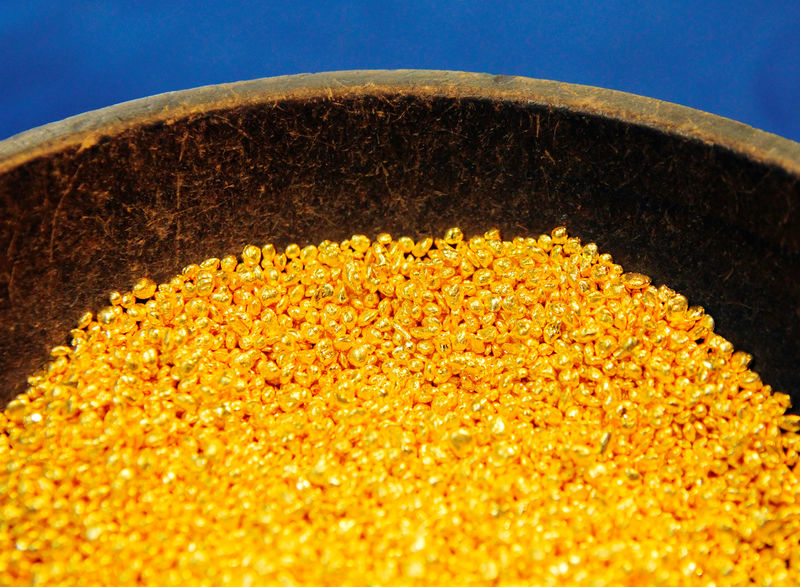Gold prices keep record highs in sight on bets on bigger rate cut
Gold prices fell slightly in Asian trade on Tuesday, but remained close to record highs amid growing conviction that the Federal Reserve will cut interest rates by a wide margin this week.
The yellow metal hit a record high on Monday and traded just below those levels as traders began pricing in a 50 basis point rate cut by the Fed on Wednesday. Strength in gold came following weakness in the dollar and Treasury yields.
Spot gold fell 0.2% to $2,578.03 an ounce, while gold futures expiring in December fell 0.1% to $2,605.05 an ounce by 23:56 ET (03:56 GMT). Gold benefits from bets on 50 bps cut
Spot prices hit a record high of $2,589.69 an ounce on Monday, as the dollar fell on bets of a bigger rate cut. The Fed is set to conclude a two-day meeting on Wednesday.
Traders were seen pricing in a 68% chance the Fed will cut rates by 50 bps at the conclusion of a meeting on Wednesday, and a 32% chance of a 25 bps cut, CME Fedwatch showed.
Lower rates bode well for gold and other precious metals, given that they reduce the opportunity cost of investing in non-yielding assets. The Fed is widely expected to signal the start of an easing cycle this week, which could see interest rates drop by over 100 bps by the end of the year.
The yellow metal also benefited from a swathe of central bank buying this year, especially in the emerging market space. This saw bullion prices perform better than other precious metals.
Platinum futures rose 0.2% to $990.50 an ounce, while silver futures steadied around $31.145 an ounce. Copper ticks higher, China stimulus in focus
Among industrial metals, copper prices rose slightly on Tuesday, also benefiting from a weaker dollar and bets on lower interest rates.
But gains in the red metal were held back by persistent concerns over top importer China, following a string of weak economic readings from the country for August.
Benchmark copper futures on the London Metal Exchange rose 0.1% to $9,388.50 a ton, while one-month copper futures rose 0.3% to $4.2770 a pound.
Weak readings from China furthered bets that Beijing will have to roll out more stimulus measures to support the economy.
Source: Investing.com
